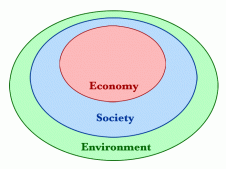A Note from the Publisher-The Myth of Sustainability
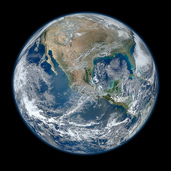
My name is Jay Burney. I have been involved with sustainability for most of my life and have written about it extensively over the last 30 years. I have come to know and to believe some things.
- There can be no sustainability without peace.
- Sustainability is complicated. Learning sustainability involves understanding and protecting the interdependent relationships between environment, culture, and economics. The real bottom line is the environment.
- The environment is the basis and upholder of life. Our economic system codifies the environment as an "externality", and not as the real bottom line. This means that the real costs of growth, GDP, and consumerism are hidden behind the false mask of profit takers and are handed off to the rest of the world to be borne in the costs of the destruction of the environment. This includes vanishing biodiversity and the changing of the atmosphere which have evolved together through the millennia. Our economic system which promotes the environment as an externality and profit as the bottom line, legalizes pollution, treats our waters as sewers, and develops land with no concern for the quantifiable costs that come with cleaning water, air, and land.
-Sustainable Development is an oxymoron. Our culture has developed a political/economic system that promotes collapse, is not sustainable and appears to be an onrushing train that will determine the fate of our species.
-Nature will endure with or without the human species. Can humanity use its unique capacity to think its way out of this dilemma? We are in the throws of an emergency. Learning Sustainability may provide some basis for hope. That is unless our lack of Peace on Earth, and our economic system, which David Suzuki describes as "Brain Cancer," proves that sustainability is a myth. I have created this website and the Learning Sustainability Campaign as a tool that will help guide us toward hope.
What Does Sustainability Mean?
The word "sustainability" means different things to different people. An economist or a business person may think of it quite differently than an ecologist or an environmentalist. A politician can easily find themselves stuck between a rock and a hard place. Learning Sustainability can help us to find common sense solutions. It is important to realize that fundamentally, sustainability is about relationships. Sustainability is also about the long term. That doesn’t mean that we can avoid short term issues. We cannot. Every decsion we make, every day effects the long term. Business and economic interests have to realize that the environment is a real bottom line when it comes to a future that works. Likewise, environmentalists have to understand that economy and business drive our decision making. Unless we can find ways to connect and work together in these sometimes divergent disciplines we are going to continue to face a troubled and unsustainable future. Our abilities to survive as a human culture, and to maintain or improve our quality of life, are predicated on our ability to learn to connect economic strategies with environmental common sense.
Our Common Future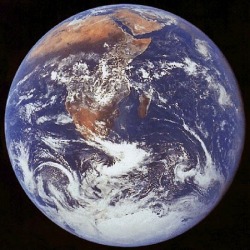
One of the groundbreaking reports that helped to establish a modern definition of sustainability was the United Nations Brundtland Commission Report
“Our Common Future.” In the early 1980’s, the United Nations established The World Commission on Environment and Development in order to study and make recommendations on global poverty, equity, environment, and development. This Commission, chaired by Norway’s Prime Minister, Gro Harleeem Bruntland published “Our Common Future” in 1987. In it a fundamental definition of ‘sustainable development” was established. “Substantial development is development that meets the needs of the present without compromising the ability of future generations to meet their own needs.” The report addressed the needs to achieve growth without compromising both the equity and opportunity of humanity now and in the future, and without compromising the basic ecological and environmental elements that make up the essential “carrying capacity” of the planet.Some may find the term “sustainable development” as an oxymoron. Others say, “Consider the alternative.” |
Environment, Economics, Society It is common practice today to identify these three overarching contexts as the essential linkages when we are trying to talk about sustainability. In his book "Natural Capitalism", Paul Hawken states that the real bottom line is the environment. Within this Enviornmental, Economic, and Social framework it is argued that all things are connected. It is important to base decision making on an inclusive model. In other words, thinking through the environmental and social costs when making an economic decision will help to identify the real economic costs, and visa-versa.
Think Global, Act Local?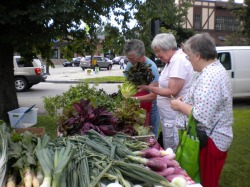
We have all heard the term "Think Global, Act Local." Learning Sustainability shows that it is especially critical that we develop a local mindset. As technology continues to promote globalism, it is easy to forget that all things start at home. Our personal and community footprints begin with individuals and gradually reach out to a wider impact area. The reality of that outward impact reflect the returns. If we learn to be more self reliant we can find ways to be safer, more economically powerful. Thinking of our communities and interest areas as a part of a region in a globalized world also focuses our thinking and our action strategies on protecting our vital resources including our environment and our cultures. Our local economy, local environment, and local cultures are the real underpinnings of what makes the world of sustainability work. Former U.S. House Speaker Tip O’Neill famously said “All politics are local”. It is so of environment and economics. Think Local, Act Local.
|
More Definitions
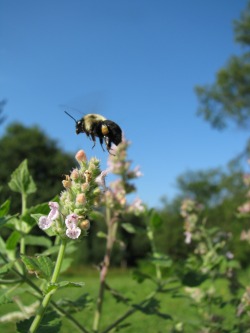
A Musical Definition of Sustain: “keep the same, prolong, maintain the status quo”. This refers to “sustaining a note.” Prolonging a note or a tone of a piece is often referred to as “sostenuto”, an Italian word which essentially means prolong. Piano’s have a sostenuto pedal.
It sounds simple enough doesn’t it? However, talk to any musician and you will be told that what appears to be simple, is indeed quite involved. Sustaining a note requires a complex interaction of energies and contexts, mingling things such as strength, origins, rhythm, tempo, tone, pitch, scale, syncopation, perception, intuition, anticipation, perspective, history, modality, coordination, breath, heartbeat and many more things, including, inevitably, coming to an end.
Latin “sustinire”, the middle English “sustenen”, and Old French “sustenir”. All of these refer to “holding up from beneath”. A more modern interpretation might challenge the linearity of above and below, and look toward a more a more holistic support structure that recognizes complex systems interactions including ecosystems, culture, governance, economics, institutions, etc.
The United States Department of Agriculture (USDA) sometimes uses this definition to describe sustainable agriculture as "Profit over the long term, stewardship of our nations land, air, and water, and quality of life for farmers, ranchers and their communities.
Click here for more discussion on this topic
Other definitions of “sustain” speak to nourishment, hope, and change.
"Sustain" is a transitive verb which indicates transition and change.
Sustainability is about an ability to prolong transition.
After World War II as the world entered a great transitional stage, the concept of sustainability became more formalized as governments and scientists began to think about the future of the planet. Sustainability became a term used to describe an approach to the present by attempting to gather information about the future.
In recent years, as we have learned that sustainability is indeed a complicated subject we have begun to examine the complex relationships that characterize the natural world and the impact of human activity on that natural world, and on humanity.
It sounds simple enough doesn’t it? However, talk to any musician and you will be told that what appears to be simple, is indeed quite involved. Sustaining a note requires a complex interaction of energies and contexts, mingling things such as strength, origins, rhythm, tempo, tone, pitch, scale, syncopation, perception, intuition, anticipation, perspective, history, modality, coordination, breath, heartbeat and many more things, including, inevitably, coming to an end.
Latin “sustinire”, the middle English “sustenen”, and Old French “sustenir”. All of these refer to “holding up from beneath”. A more modern interpretation might challenge the linearity of above and below, and look toward a more a more holistic support structure that recognizes complex systems interactions including ecosystems, culture, governance, economics, institutions, etc.
The United States Department of Agriculture (USDA) sometimes uses this definition to describe sustainable agriculture as "Profit over the long term, stewardship of our nations land, air, and water, and quality of life for farmers, ranchers and their communities.
Click here for more discussion on this topic
Other definitions of “sustain” speak to nourishment, hope, and change.
"Sustain" is a transitive verb which indicates transition and change.
Sustainability is about an ability to prolong transition.
After World War II as the world entered a great transitional stage, the concept of sustainability became more formalized as governments and scientists began to think about the future of the planet. Sustainability became a term used to describe an approach to the present by attempting to gather information about the future.
In recent years, as we have learned that sustainability is indeed a complicated subject we have begun to examine the complex relationships that characterize the natural world and the impact of human activity on that natural world, and on humanity.
